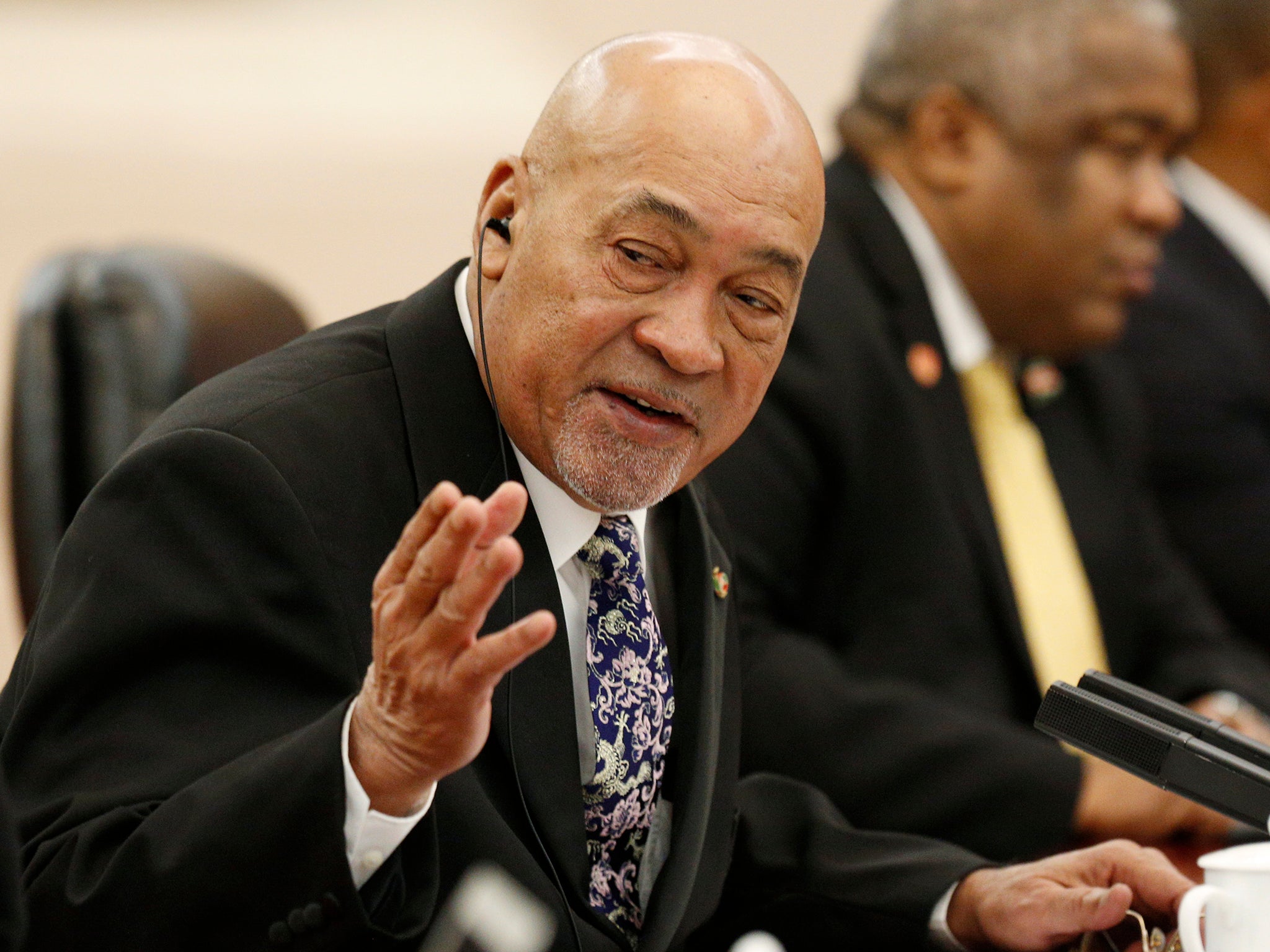President convicted of murder for 1982 executions by Suriname court
Fifteen opponents were killed as part of coup to seize power

Your support helps us to tell the story
From reproductive rights to climate change to Big Tech, The Independent is on the ground when the story is developing. Whether it's investigating the financials of Elon Musk's pro-Trump PAC or producing our latest documentary, 'The A Word', which shines a light on the American women fighting for reproductive rights, we know how important it is to parse out the facts from the messaging.
At such a critical moment in US history, we need reporters on the ground. Your donation allows us to keep sending journalists to speak to both sides of the story.
The Independent is trusted by Americans across the entire political spectrum. And unlike many other quality news outlets, we choose not to lock Americans out of our reporting and analysis with paywalls. We believe quality journalism should be available to everyone, paid for by those who can afford it.
Your support makes all the difference.A court in Suriname convicted president Desi Bouterse of murder for the execution of 15 opponents in 1982 following a coup to seize power, sentencing the man who has dominated the former Dutch colony's recent history to 20 years in prison.
Opposition parties called for Bouterse, currently in China on an official visit, to step down. The military court that found him guilty has not yet ordered his arrest.
Bouterse was expected to return to Suriname on Saturday or Sunday, skipping a planned trip to Cuba, the vice president of his National Democratic Party told local newspaper De Ware Tijd. Ramon Abrahams told the paper he was in telephone contact with Bouterse and called an emergency meeting of the party.
Bouterse led the South American country through the 1980s as head of a military government, then assumed office again in 2010 and secured re-election five years later.
The court ruled that Bouterse had overseen an operation in which soldiers under his command abducted 16 leading government critics – including lawyers, journalists and university teachers – from their homes and killed 15 of them at a colonial fortress in the capital Paramaribo.
One trade union leader survived and later gave testimony against Bouterse.
Bouterse, who has steadfastly denied the charges, is able to appeal the decision. The president, who was represented by a lawyer in the trial, has so far made no comment on his conviction.
In a statement, the Surinamese government said it had “taken note of the developments and calls on the community to keep the peace”.
Critics have vilified the 74-year-old Bouterse as a dictator who has clung to power in the country of 560,000 people, which gained independence from the Netherlands in 1975.
Angelic del Castillo, head of the opposition Democratic Alternative '91 party, said Bouterse had “disqualified himself” from remaining Suriname's leader and demanded he immediately resign. “This is in the interest of the dignity of the office and of our nation,” Ms del Castillo said in a statement.
In 1999, Bouterse was convicted in absentia of drug trafficking by a court in the Netherlands, though he has denied any wrongdoing. A Suriname judge in 2005 convicted Bouterse's son, Dino, of leading a gang that trafficked in cocaine, illegal arms and stolen luxury cars.
As a junior military officer, Bouterse took part in the 1980 coup against Suriname's first prime minister, Henck Arron, and immediately promoted himself to army chief-of-staff, becoming effective ruler of the government.
The court on Friday evening later convicted six other former military officers, including the country's current consul to neighbouring French Guiana, of murder for their part in the episode, including forcibly removing victims from their homes at night or participating in the shooting.
In a joint statement, the diplomatic missions of the Netherlands, United States, United Kingdom, Spain, Germany and France to Suriname said it was “critical” that the verdicts be “implemented and upheld in accordance with the rule of law”.
Bouterse left the army in late 1992 and went into business and politics, heading the pro-military National Democratic Party (NDP) and remaining a prominent if controversial national figure.
Bouterse and the NDP have consistently tried to obstruct court proceedings, which began in 2007. In 2012, the NDP-controlled National Assembly passed an amnesty law giving him immunity but that was later invalidated by a court ruling.
Reuters
Join our commenting forum
Join thought-provoking conversations, follow other Independent readers and see their replies
Comments